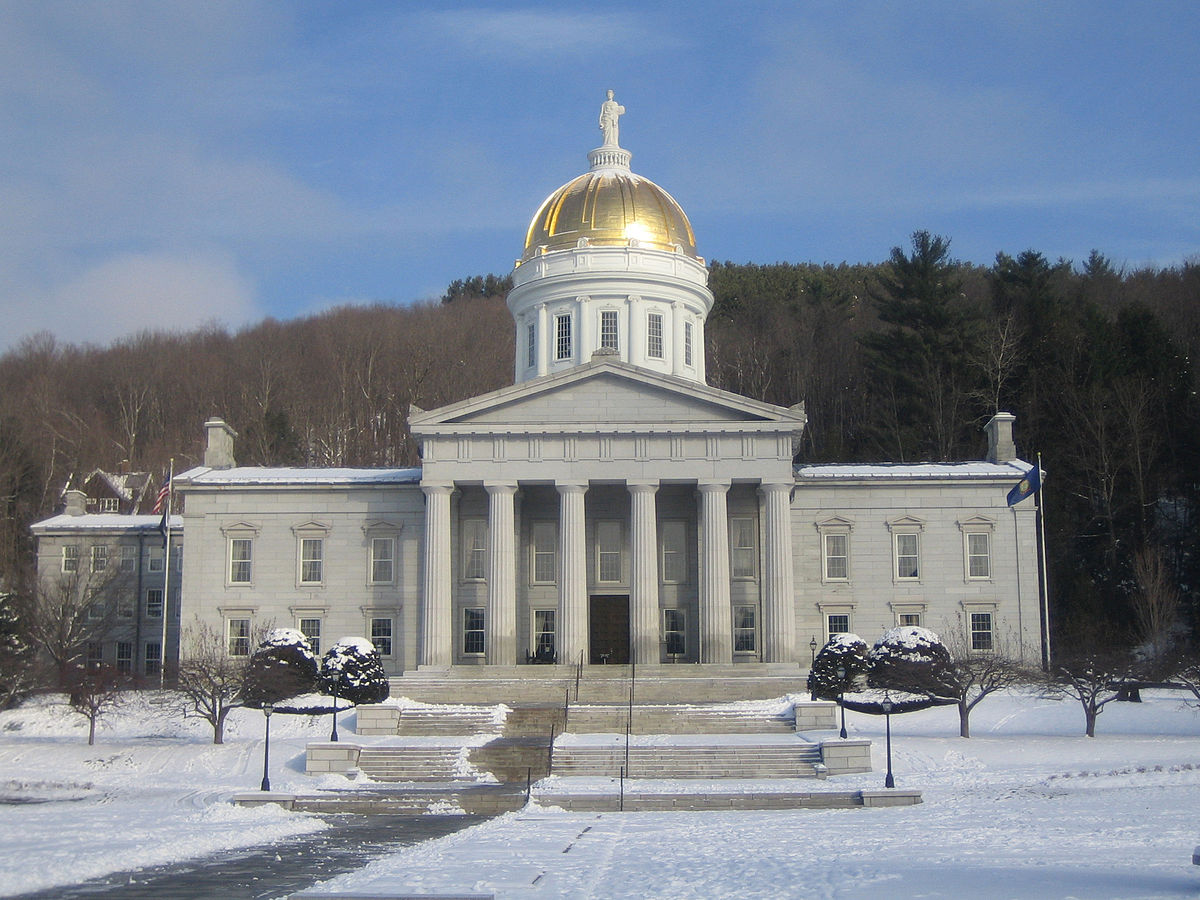LEGISLATIVE UPDATE February 24, 2020
WEEK 7:
We are entering the final week before Town Meeting break. I encourage you to reach out to your Senator or Representative during the break to discuss your concerns or support for legislation. They are elected to represent you, so they need to hear from you. We are also getting close to cross-over, March 15, the time where a bill needs to go from one body to another, to be considered this session. (although there are always exceptions.) Being an election year there is always the urgency to finish the legislative session by early May, we will see if that happens.
INCLUDED IN THIS UPDATE
- ACT 250/ H926
- Dairy Pricing
- S-180 Chlorpyrifos
- H-674 Land Use
- H-688 Climate Action
- S-54 Minimum Wage
H-926 An act relating to changes to Act 250
The House Ways and Means committee did a walk-through of H-926 on Tuesday afternoon. It was apparent from the conversation that the committee had concerns over the increase in fees for the new Board structure. On Thursday House Ways and Means took more testimony and on Friday the committee, on a vote of 11-0, amended the bill to the original fees. The committee then voted on the entire bill and that vote was 6-5 in support of H-926. At the same time the House Natural Resources committee was discussing the new Board structure. On Friday the House Natural Resources committee discussed a new amendment that would remove the new Board structure and revert to the current structure. The House Natural Resources committee decided to introduce an amendment on the floor, Tuesday, that will revert to the current structure of the board.
The bill still contains the expanded criteria, which include:
* Reorganizing the air and water pollution criteria.
* Amending the transportation, energy conservation, and public investment criteria.
* Amending the criteria to address ecosystem protection through protecting forest blocks and connecting habitat. The bill also would increase the program’s ability to protect ecosystems on ridgelines by reducing the elevation threshold from 2,500 to 2,000 feet.
* Adding new criteria related to climate adaptation and environmental justice.
* Requiring that, to be used in Act 250, local and regional plans must be approved as consistent with the statutory planning goals and clarifying that local and regional plan provisions apply to a project if they meet the same standard of specificity applicable to statutes.
* As part of a balancing of interests to support economic development in compact centers while promoting a rural countryside, supporting a working landscape, and protecting important natural resources, exempting designated downtowns and neighborhood development areas from Act 250 and increasing Act 250 jurisdiction at interstate interchanges and over
* Amending the Capability and Development Plan Findings
* Clarifying the definition of “commercial purpose” so that it is not necessary to determine whether monies received are essential to sustain a project.
* Increasing the per diem rate for District Commissioners to $100.00.
* Reaffirming the supervisory authority in environmental matters of the Board and District Commissions, in accordance with the original intent of Act 250 as determined by the Vermont Supreme Court.
* Revising and clarifying the statutory authority on the use of other permits to demonstrate compliance with the criteria.
* Creating a process that would allow properties to be released from Act 250 jurisdiction.
* Requiring slate quarries to be added to the Agency of Natural Resources Natural Resource Atlas.
* Establishing a pre-application process to allow municipal and regional planning commissions to weigh in on a project before the Act 250 permit application is filed.
* Allowing forest-based enterprises to operate outside of permitted hours
* Shifting the burden of persuasion to the applicant under criterion 8.
* Requiring the Agency of Natural Resources to establish a permit program for highest priority river corridors.
DAIRY PRICING
On Thursday the House and Senate Agriculture committees heard from Roger Allbee and Dan Smith with their proposal that creates a new pricing structure for the Vermont dairy industry. The proposal is asking the Governor to:
Establish Task Force, Spring 2020
- Cabinet Secretaries
- Agency of Agriculture
- Agency of ANR
- Agency of Commerce and Community Development
- Legislative Chairs
Task Force Mandate
- Milk market price/supply regulation
- Water quality/farm practice regulatory oversight
- Innovative economic development
- Reduce state fiscal outlay
The proposal includes an “Integrated State Milk Market Regulation and Dairy Farm Practice Oversight Agency”. There would be a new “Cross-Agency Regulatory Entity.” This entity would be based after the Maine model. Also included:
Regulated Supply Management
- Whole farm nutrient management planning
- Enhanced water quality clean up
- Reduced externality costs
- All costs internalized in milk price
Economic Development
- Promote Leading Vermont Brands
- Rationalize supply chain for raw product
- Support new market entry and product offerings
- Utilize more in-state raw milk supply
- Re-purpose existing state funding
- Partner with Fed Dairy Innovation Ctr
“Reduced state fiscal outlay, promote public interest in open spaces and improved water quality, and rationalize future sustainability for Vermont dairy industry”
There were concerns raised by the Agency of Agriculture on the pounds of milk that were attributed to in-state use. The report stated that over 1.5 billion pounds were in-state based processing and manufacturing. The Agency of Agriculture felt that the actual number was significantly less.
CHLORPYRIFOS
S-180 An act relating to prohibiting the use and application of the pesticide chlorpyrifos
The Senate Agriculture committee is supporting S-180 with language that prohibits the sale of CHLORPYRIFOS. S-180 also includes changes to the membership of the Pesticide Advisory Council to include:
- Commissioner of DEC
- Secretary of Ag
- Commissioner of Health
- One representative from agronomy, entomology, or plant pathology
- One representative from pesticide research
- One representative with expertise in farming
- One representative with expertise with environmental consequences of pesticide use
- One representative with expertise in integrated pest management
- Two members appointed by the Governor
- One with commercial agriculture production
- One with knowledge of environmental public health
The bill removes the representation from Forest and Parks and Agency of Transportation. The bill also requires a report annually starting February 1, 2021 “regarding the specific actions and activities accomplished by the Council in the previous calendar year to reduce risk to humans and the environment from pesticide use and to reduce the amount of pesticides used within each category of pesticide use in Vermont. The report also shall include all recommendations by the Council to the General Assembly under subdivisions (d)(6) and (7) of this section regarding targets for achieving an overall reduction in the use of pesticides.”
Section 5 of the bill includes language that requires the Secretary of Ag to develop best practices for the use of atrazine that reduces the amount used by farmers and avoids or mitigates the potential harm to public health from the use of atrazine. It is likely that S-180 will pass out of committee this week. The other bills dealing with pesticides did not have any activity last week.
H-674 An act relating to clarifying the definition of development used for use value appraisals
The House passed H-674 last Thursday and is now in the Senate. This bill proposes to clarify that the exclusion from development for farm buildings includes buildings associated with a “farm accessory business” as defined in law.
The language in this bill allows “More than one dwelling may share the same house site, provided the dwellings are contained within a two-acre area.”
H-688 An act related to addressing climate change
This bill proposes to create a legally enforceable system by which Vermont will reduce its statewide greenhouse gas emissions and establish strategies to mitigate climate risks and build resiliency to climate change. This act may be cited as the Vermont Global Warming Solutions Act of 2020.
After much debate on the floor Thursday afternoon the House voted105 -37 to pass H-688. The bill would require that by 2025 Vermont reduces greenhouse gas emissions by 26% below the 2005 amount and 80% below by 2050. There are concerns from Secretary of ANR that the state will not have adequate time to finish the rule-making process before the cause of action date. The other item of concern is the Citizen Right of Action, which allows a lawsuit against the state for not meeting the reductions. The bill will now go to Senate Natural Resources.
Minimum Wage
The House will try to override Governor’s Scott veto of S-54 on Tuesday. The bill would raise the minimum wage to $11.75 by January 1, 2021 and $12.55 by January 1, 2022. To override the veto100 votes are needed.
Minimum Wage
The House will try to override Governor’s Scott veto of S-54 on Tuesday. The bill would raise the minimum wage to $11.75 by January 1, 2021 and $12.55 by January 1, 2022. To override the veto 100 votes are needed.
BILLS OF INTEREST
The date for introduction of bills has passed, if a new bill is to be introduced it would need to be a committee bill. As of today, there are 919 House bills and 337 Senate bills for the last two years.
As of 2/14/2020
H-926 An act relating to changes to Act 250 (a committee bill)
As of 2/02/2020
S-336 An act relating to establishing standards for the sale of hemp seed
As of 1/26/2020
H-830 An act relating to the use of food residuals for farming
H-832 An act relating to the use and management of pesticides
H-852 An act relating to signal lamp permits for farm tractors and farm trucks
H-853 An act relating to discontinued highways, legal trails, and impassable or untraveled highways
S-321 An act relating to miscellaneous fish and wildlife issues
As of 1/19/2020
H-557 An act relating to municipal regulation of livestock running at large
H-562 An act relating to the definition of agricultural land for the purposes of use value appraisals
H-575 An act relating to bears doing damage to agricultural crops
H-581 An act relating to the funding of the Department of Fish and Wildlife
H-584 An act relating to disclosure of cyanobacteria outbreak prior to conveyance of real property
H-616 An act relating to the professional regulation of land surveyors
H-628 An act relating to Cross Vermont Trail directional signs
H-633 An act relating to development and subdivisions above 1,500 feet
H-673 An act relating to tree wardens
H-674 An act relating to clarifying the definition of development used for use value appraisals
H-688 An act relating to addressing climate change
H-759 An act relating to the use of neonicotinoid-treated article seed
H-766 An act relating to the regulation of cannabis
H-794 An act relating to limiting liability for agritourism
H-798 An act relating to the use of biochar
H-828 An act relating to Vermont standards for issuing a Clean Water Act section 401 certification
H-829 An act relating to the use of the pesticide chlorpyrifos
S-200 An act relating to the definition of house-site for use value appraisals
S-280 An act relating to forest carbon sequestration programs
S-310 An act relating to use value appraisals
S-315 An act relating to administration and enforcement of agricultural water quality violations
To learn more about any of the bills listed above, visit the Vermont Legislative website at https://legislature.vermont.gov/ and use the very convenient search tool available. If you wish us to keep a keen eye on any of the above bills, please let us know by sending an email to info@vermontwoodlands.org.



